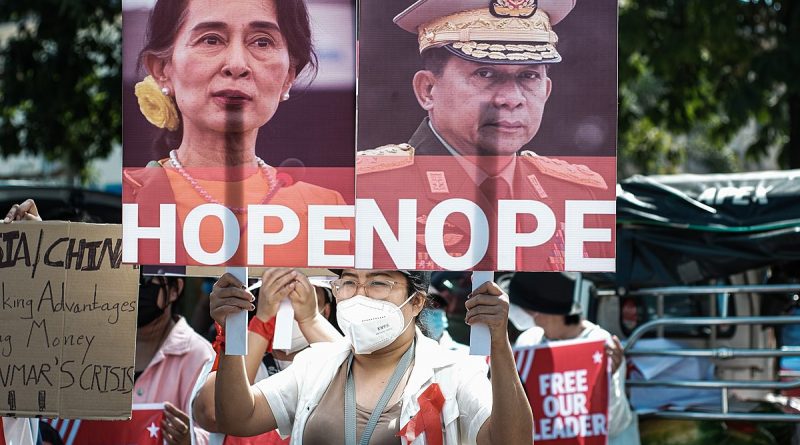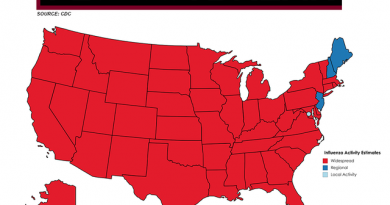Myanmar Military Government Extends State of Emergency and Delays Elections
Austin DelSontro
Staff Writer
On February 4, the military junta in charge of Myanmar imposed martial law in several strongholds of anti-military resistance, Al Jazeera reports. In the numerous townships affected by the new measures, the citizens of Myanmar will be tried for various charges from treason to spreading fake news. As announced by state-controlled media, the junta will not hear any appeals, except in cases involving the death penalty. This new measure by the military government suggests an increasingly concerted effort to suppress resistance in regions where protests have taken place since a military coup occurred two years ago.
Such a measure comes after Myanmar’s military government announced the extension of a two-year state of emergency on February 1, the Associated Press adds. This decision delays their plans for an August election, which the government has justified as necessary to maintain peace and stability in the country. The emergency will be extended for another six months to prepare for peaceful and fair elections due to what the junta describes as ongoing abnormal circumstances.
Myanmar has a long history of military rule, Al Jazeera explains. Armed forces controlled the country until a fragile democracy was briefly established just over 10 years ago. Myanmar first achieved independence in 1948 after long struggles with Great Britain and Japan. Unfortunately, democracy did not last long; in 1962, the military staged a coup and took control leading to economic stagnation and suppression of opposition parties. In 1977, Aung San, who helped lead the country to independence, was assassinated.
His daughter, Aung San Suu Kyi, founded the National League for Democracy (NLD), the leading party behind the nation’s long and winding path to democracy. In 1988, pro-democracy protests were met with a brutal military crackdown. Amid international pressures, the military government held an election in which the NLD won in a landslide, but the military refused to hand over power. Aung San Suu Kyi has been arrested multiple times and supporters were beaten to death in 2003. After years of protests and the Cyclone Nargis disaster, democratization began with a controversial constitutional referendum in 2008. In 2015, the NLD finally gained power with Aung San Suu Kyi as state counselor, although the military continued to play a prominent role in politics.
Al Jazeera details that after the NLD’s resounding victory in the 2020 election where they garnered even more votes than in the 2015 election, the military’s proxy party, the USDP, demanded a rerun and requested military assistance to ensure fairness, citing alleged irregularities. While an independent election commission rejected these claims of voter fraud, on February 1, 2021, the military imposed a state of emergency and transferred power to military chief Min Aung Hlaing, best known for his staunch anti-democratic stances. This came after Aung San Suu Kyi and other top government officials were arrested in early morning raids.
In the immediate aftermath of the coup, the Associated Press reports how the ouster of the elected government provoked widespread protests and civil disobedience. As time passed, the military used violence to suppress any displays of opposition. Several governments rejected the army’s leadership and imposed sanctions, restricting some financial flows. However, Myanmar’s neighbors in Southeast Asia and its most powerful ally, China, hesitated to take similar actions.
Since the military takeover, they have employed increasingly harsh tactics, including the first executions in 30 years, to suppress dissent. The economy has severely declined, due to both the instability of the government and the various restrictions imposed by other nations. Deutsche Welle estimates that thousands have died and over a million have been displaced. There have been multiple attacks and kidnappings throughout the country carried out by the military government, with the prisons full of political prisoners.
Bloomberg reports the United States and its allies, the United Kingdom, Canada, and Australia, have all condemned Myanmar’s move to extend a state of emergency for another six months, in addition to the undemocratic military government. The U.S. has made clear that it will continue to deny the regime international credibility. The United Nations Security Council had passed a resolution calling for an end to the violence, and additionally, the release of all political prisoners. For now, the rest of the world waits with bated breath and hopes for an end to this violent civil conflict.
Image courtesy of Wikimedia Commons


